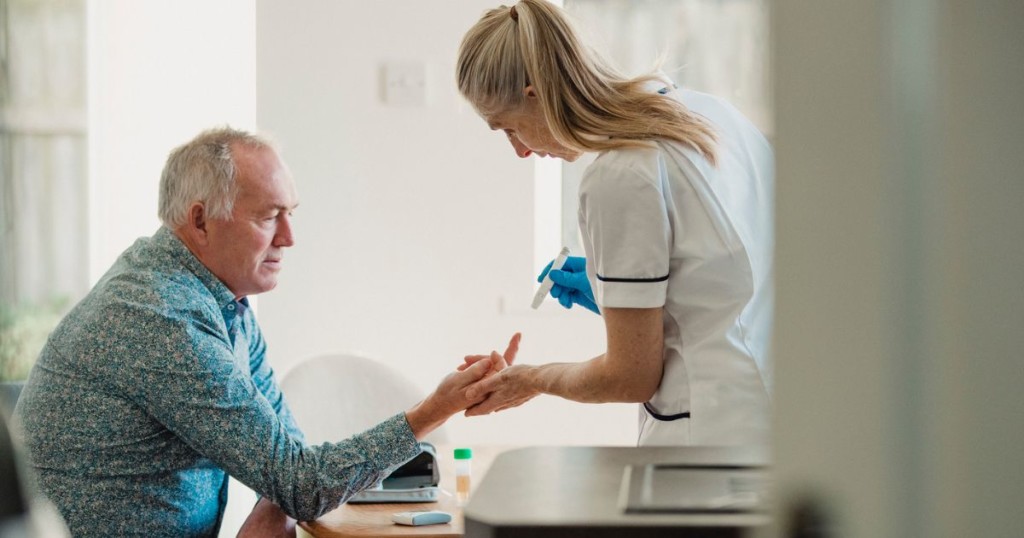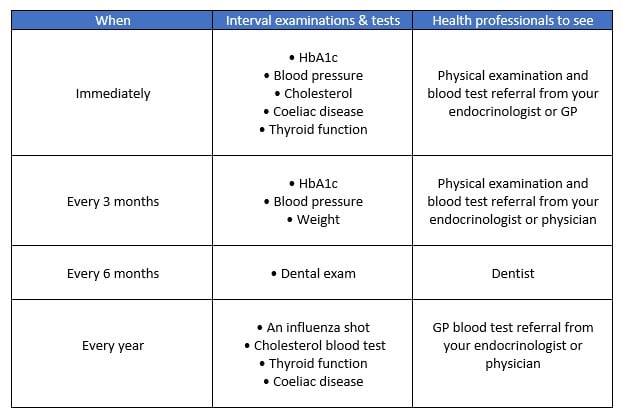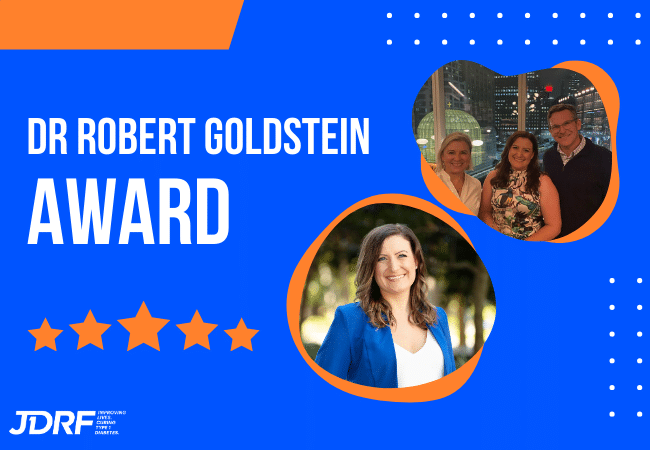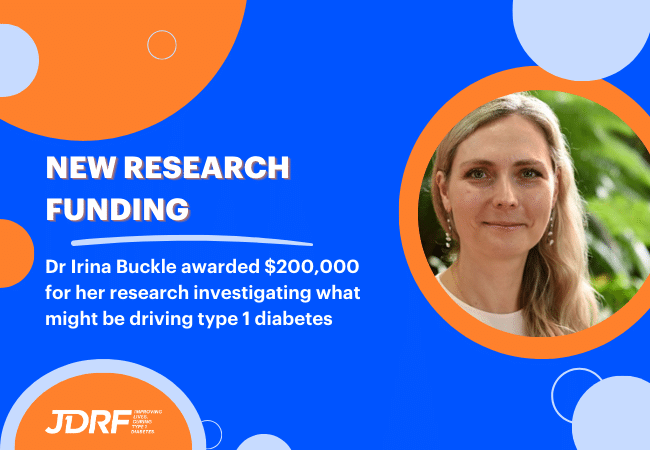Your type 1 diabetes healthcare professionals (and when to see them)

Living successfully with type 1 diabetes (T1D) requires you to be fully in control of your diabetes management. Self-management means having a daily management plan, setting goals, solving problems, and taking responsibility. But it certainly doesn’t mean you’re on your own – there are a number of healthcare professionals who can help you manage your T1D and care for yourself.
Every person’s journey is unique and your management plan must be tailored to suit your medical needs and goals, taking into account your resources and lifestyle. It’s up to you to choose which of the healthcare professionals below you’d like to consult and include on your healthcare team. You can discuss with your GP what is right for you.
See a checklist of when each health test is recommended.
Your healthcare team
Credentialled diabetes educator (CDE)
Credentialled diabetes educators can support and empower you through education to successfully manage your T1D. They can provide you with the resources and tools you require for different aspects of your diabetes care and aim to make living with T1D easier.
Read more about CDEs here.
Dietitian
A dietitian can offer you specialist and personalised dietary advice taking into account a number of factors such as your lifestyle, age etc. Medicare may cover the cost or provide a rebate for five visits a year to allied health professionals (like dietitians and podiatrists).
Find a dietitian who specialises in type 1 diabetes using the search feature on the Dietitians Australia website.
Endocrinologist
An endocrinologist is doctor who specialises in conditions caused by problems with hormones, including type 1 diabetes, and can provide expert advice. You can see an endocrinologist after getting a referral from your GP.
Exercise physiologists
Accredited exercise physiologists (AEPs) are allied health professionals. They can help people with chronic medical conditions through exercise prescription to better manage their condition and focus on improved quality of life. For people living with T1D, exercise physiologists can help develop a personalised exercise plan based on specific goals, preferences and ability.
Find an accredited exercise physiologist on the Exercise & Sports Science Australia (ESSA) website.
General practitioner (GP)
When seeking care at the time of diagnosis, GPs are typically the first point of contact. Your family practitioner or GP can play an important role in diagnosis and ongoing advice. They can also refer you to any specialists you may need to see.
Optometrist
Diabetic retinopathy can be one of the complications of type 1 diabetes. Read more about eyesight complications of type 1 diabetes.
An optometrist can examine, diagnose, and treat your eyes. Most people with T1D get regular eye examinations to ensure that any changes can be detected and treated early.
Search for an optometrist who specialises in diabetes eye care on the Optometry Australia website.
Podiatrist
Podiatrists are medical experts who specialise in treating problems that affect your feet or lower legs. They can treat complications from chronic health conditions like type 1 diabetes.
Find a podiatrist near you on the Australia Podiatry Association website.
Therapist, psychiatrist and/or counsellor
T1D can have emotional, social and psychological effects and some people may find it beneficial to consult a mental health professional.
If you’re looking for support, resources & information on how to access mental health services, take a look at our detailed mental health access guide for people living with T1D.
Checklist of when to see your healthcare team
From the time of diagnosis:

Tests after having been diagnosed with T1D for more than three years:

Tests after having been diagnosed with T1D for more than five years:






